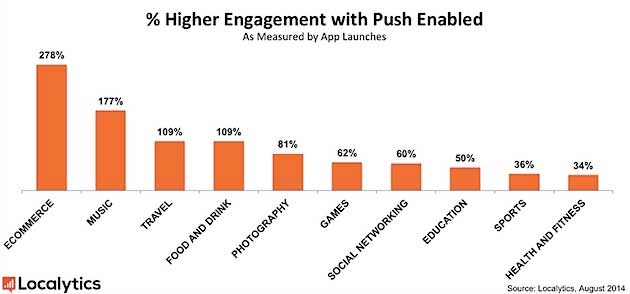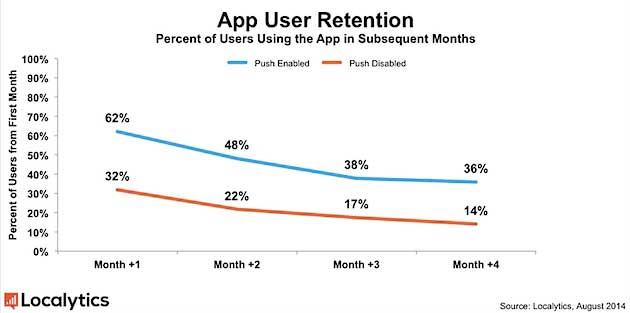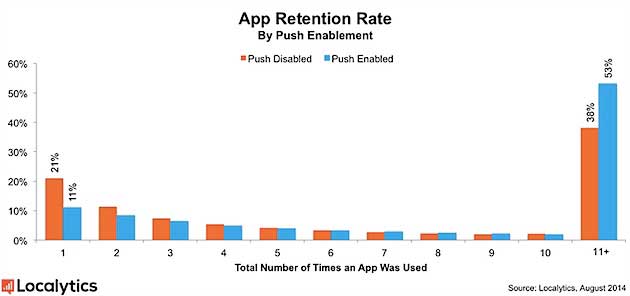Users who enable push notifications from mobile applications average 88% more launches of those apps compared with users who disable push notifications, according to a recent report from Localytics.
The increased usage is even more pronounced for certain app categories. For example, e-commerce apps register a 278% lift in engagement on average when push notifications are enabled and music app engagement jumps 177%, the analysis found.
Other categories, such as sports and health & fitness apps, register smaller average boost in engagement, though the increase is still significant (36% and 34%, respectively).

Below, additional key findings from the report, which was based on data from 28,000 iOS and Android apps.
Retention
- 62% of users who have enabled push notifications will return to an app the month after installation if messaged, compared with only 32% of users who have not enabled notifications and who are not messaged.
- Four months after their first session, 36% of push-enabled users are still engaging with an app on average, compared with only 14% of non-push users.

Abandonment
- 21% of push-disabled apps are only used once, compared with 11% of push-enabled apps.
- 53% of users who have enabled push-messaging come back to an app at least 11 times on average.

About the research: The report was based on data collected in July 2014 from 28,000 iOS and Android apps.




